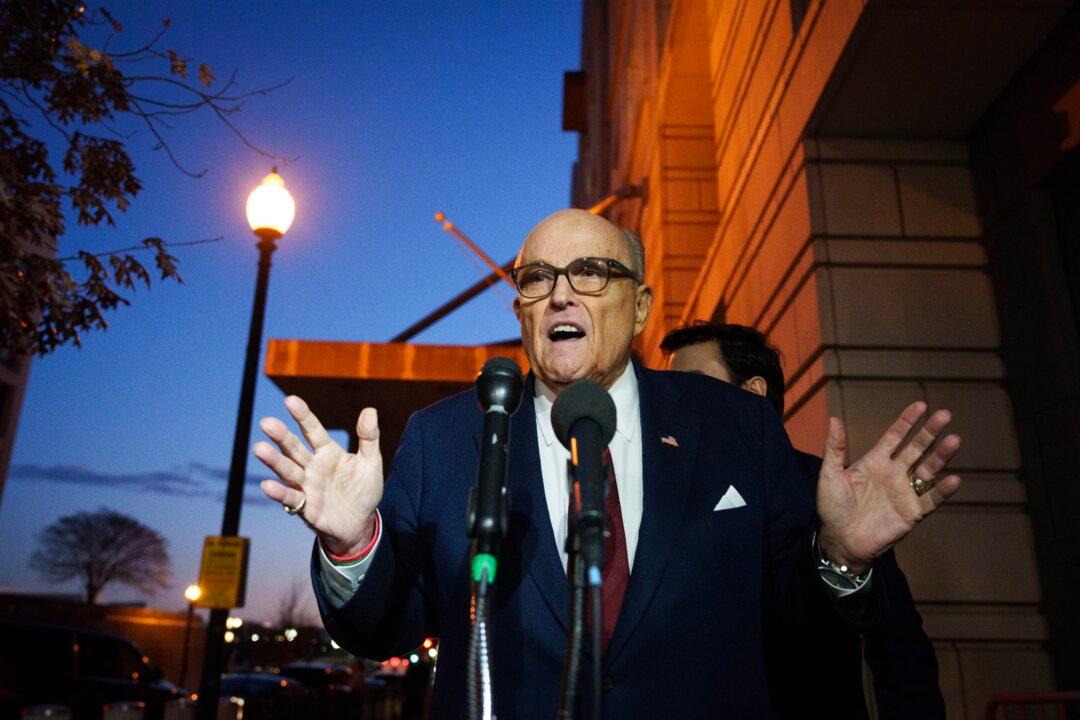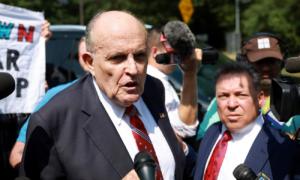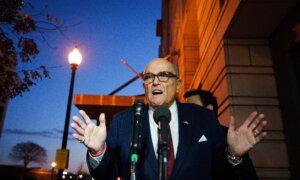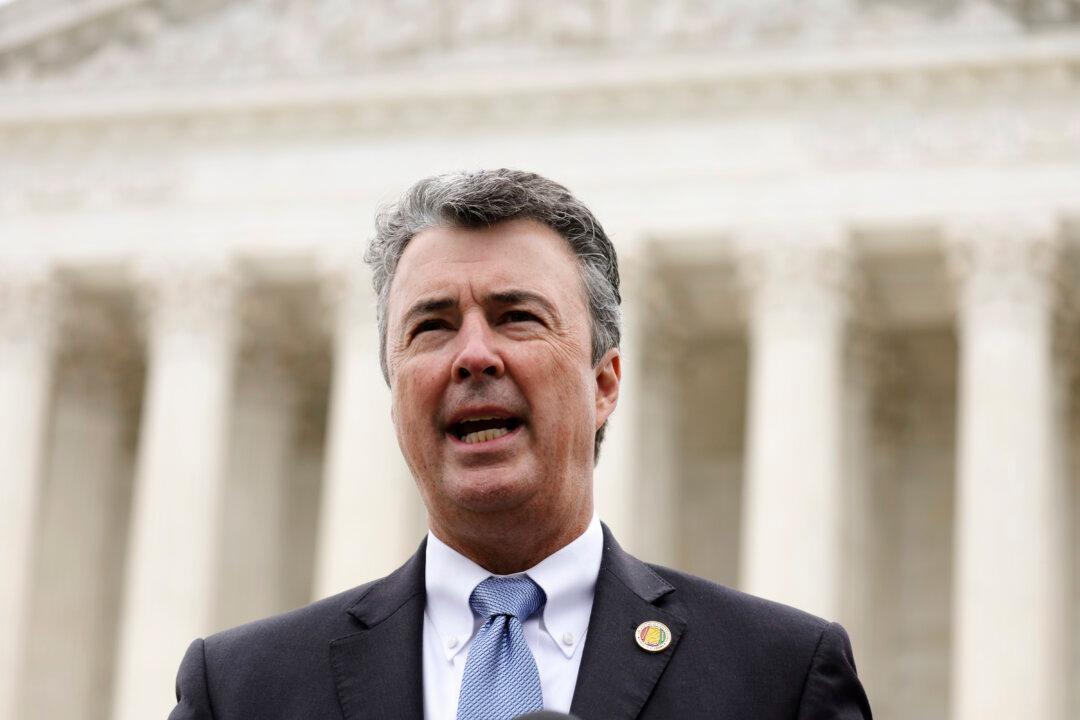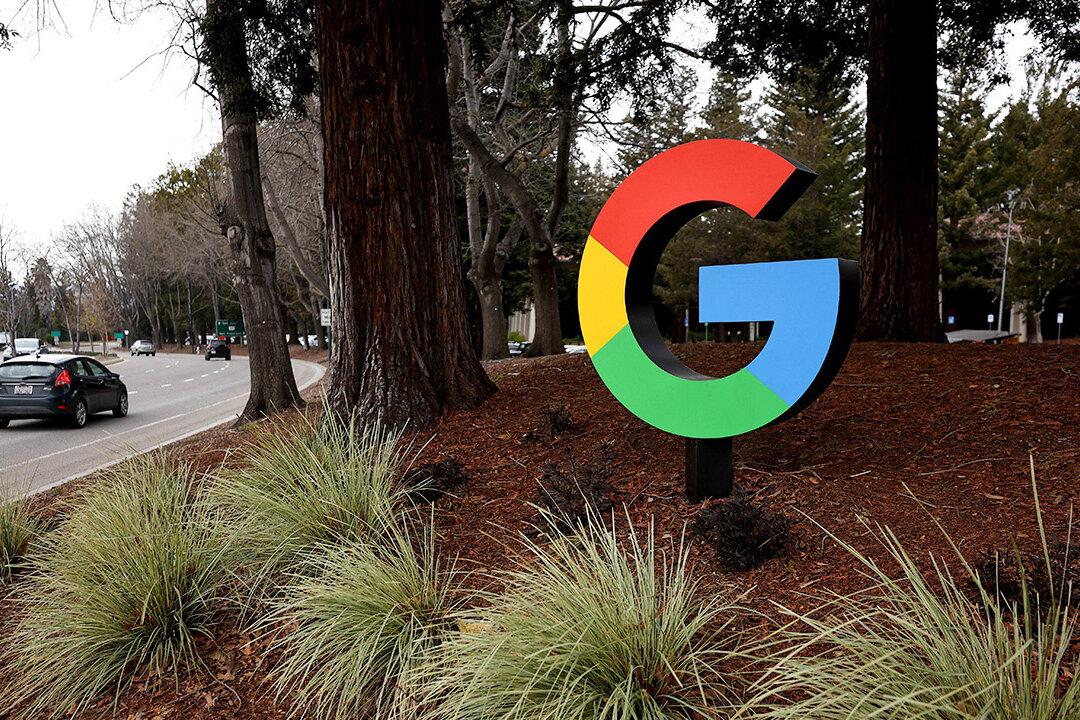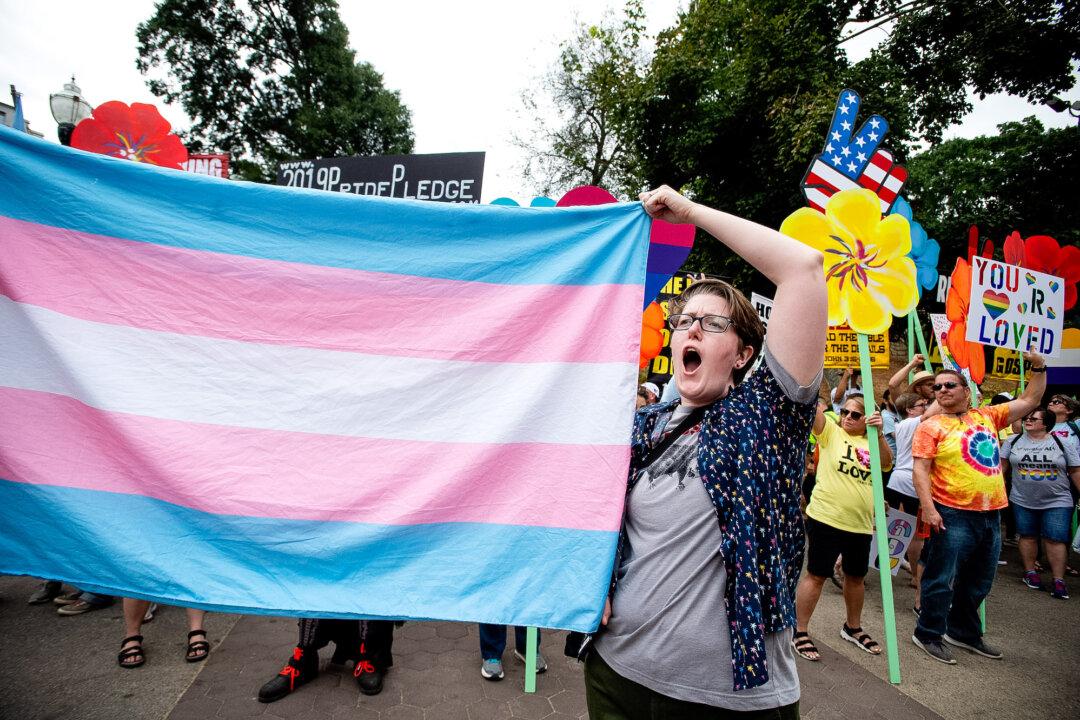The jury in Rudy Giuliani’s defamation trial entered deliberations on Dec. 14 following closing statements in which the plaintiffs’ attorney asked for tens of millions of dollars in damages.
Michael Gottlieb, an attorney for 2020 election workers Ruby Freeman and Shaye Moss, asked the jury to provide at least $24 million in reputational damages for each of them. The amount for intentional infliction of emotional distress is to be determined by the jury. Jurors were also instructed to award punitive damages, which Mr. Gottlieb said should be above and beyond whatever compensatory damages are awarded.
Mr. Gottlieb argued that the two women should have been seen as heroes but instead were targeted by Mr. Giuliani, who abused his notoriety to defame them. His closing statement started by portraying Mr. Giuliani as unrepentant. He played a video of Mr. Giuliani saying earlier in the week that his statements about the women were true.
The election workers had been identified in a video clip that became widely circulated after the 2020 general election. In it, they are seen allegedly mishandling ballots. An investigation by the Georgia Elections Board later cleared Ms. Freeman and Ms. Moss of wrongdoing, but the two women said the damage had been done.
U.S. District Chief Judge for the District of Columbia Beryl Howell issued a default judgment against Mr. Giuliani in August after he failed to produce documents and other information requested by the plaintiffs’ attorneys. Mr. Giuliani also opted not to contest allegations that he made false and defamatory statements about the election workers.
Giuliani’s Attorney Shifts Blame Onto Gateway Pundit
Joseph Sibley, Mr. Giuliani’s attorney, started his closing statement by explaining that he decided not to have Mr. Giuliani testify because the plaintiffs had been through “enough.” At the beginning of the trial, Mr. Sibley had said that the jury would hear from Mr. Giuliani.After acknowledging that the plaintiffs had been wronged, Mr. Sibley criticized the witnesses’ conduct and suggested that the plaintiffs’ counsel was engaging in “puppeteering” during testimony.
Mr. Gottlieb contended, however, that Mr. Giuliani was “patient zero” for the spread of harmful content about the plaintiffs.
He argued that Ms. Freeman’s name became “infamous” after Mr. Giuliani’s Dec. 3, 2020, statements about the two. Describing Mr. Giuliani’s and the Trump campaign’s actions, Mr. Gottlieb said that they used rocket fuel and kerosene to burn down a house and ruin its foundations. Even if repairs were made, Mr. Gottlieb said, the house—like the plaintiffs’ lives—would be dangerous to live in.
He described how Ms. Moss had nightmares about her son and mother finding her hanging from a tree, how she suffered panic attacks, how she sometimes thought it would be better if she went to sleep and didn’t wake up, and how her 14-year-old son allegedly failed out of school due to threats.
Sibley: ‘Rudy Giuliani Is a Good Man’
Mr. Sibley said that considering a reeducation or reputational reparation campaign was inappropriate and that Mr. Giuliani didn’t encourage violence against the plaintiffs.The exact amount to be awarded remains to be seen while jurors have been given substantial discretion over damages. Mr. Sibley notably said during his opening statement on Dec. 11 that the amount the plaintiffs sought would spell “the end” for his client and that it would be “the civil equivalent of a death penalty.” On Dec. 14, he said the requested damages were “catastrophic” and part of a “Hollywood-type damage model.”
“Rudy Giuliani is a good man,” Mr. Sibley said, noting that “he hasn’t exactly helped himself” in “the preceding days” and that he “shouldn’t be defined by” recent events.
“That’s not who he is,” Mr. Sibley said, referring to the idea that Mr. Giuliani was racist. He also reminded the jury of Mr. Giuliani’s role as mayor of New York City. “I’m asking you to remember that this is a man” who did “great things,” Mr. Sibley said. He urged the jury to send a message that would allow Americans to come together during a divisive time in the country.
Mr. Sibley also suggested that the jury’s estimate for damages should be rooted in “fact” rather than certain testimony and that jurors should be “reasonable” in determining the punitive amount.
Part of Mr. Gottlieb’s criticisms included the fact that Mr. Giuliani refused to comply with discovery. That, he said, precluded Ms. Humphreys from acquiring information that would have allowed her to more accurately estimate the impact of Mr. Giuliani’s statements.
During redirect, Mr. Gottlieb told the jury that the case wasn’t about who Mr. Giuliani was but what he did. Punitive damages, he said, wasn’t about the Sept. 11 attacks or “taking on the mob,” a reference to Mr. Giuliani’s history in law enforcement. Mentioning the Gateway Pundit was also a “losing” argument for Mr. Giuliani, Mr. Gottlieb said, as everyone should be punished for spreading falsehoods, even if a website such as Gateway Pundit participated. He said that the “only reason” the plaintiffs ended up on the Gateway Pundit’s “radar” was because of Mr. Giuliani.
Judge Howell gave jurors final instructions before allowing them to leave for deliberation. She urged them to weigh the evidence without prejudice and not to use their interpretations of the law to supplant what she said in her instructions.
